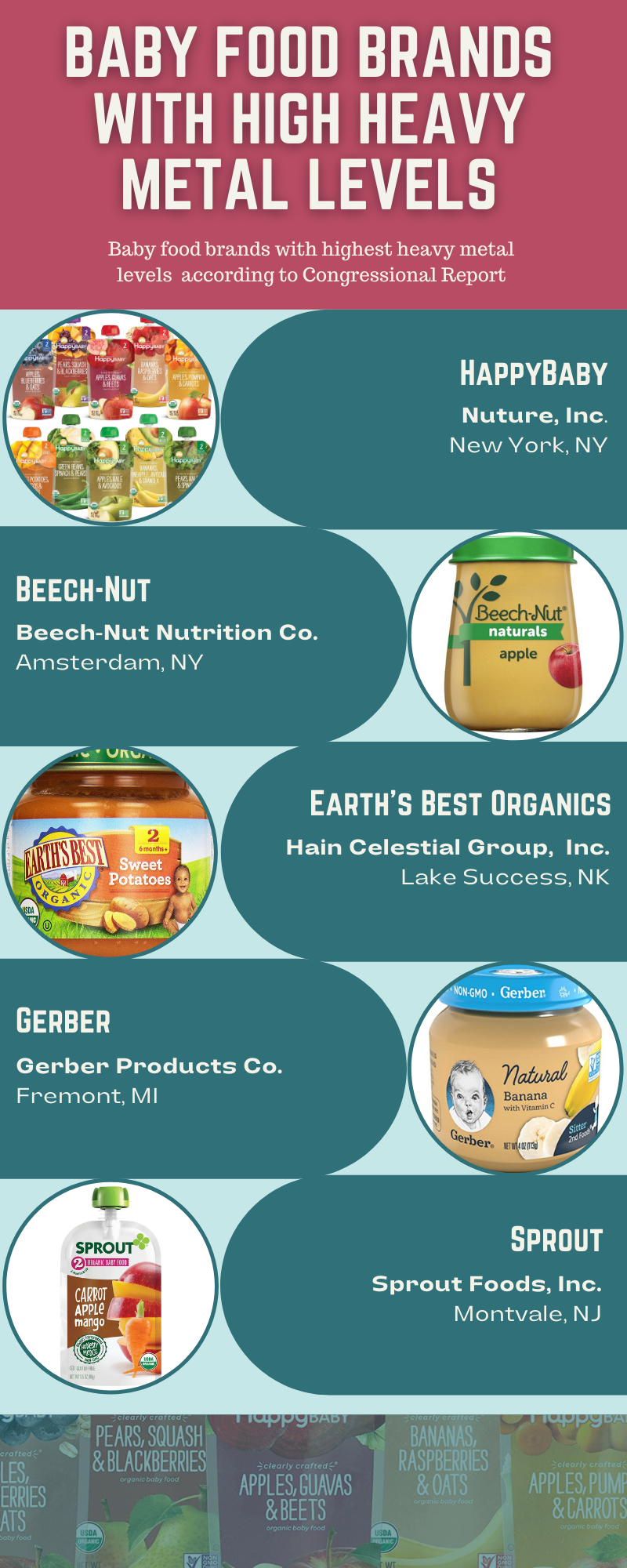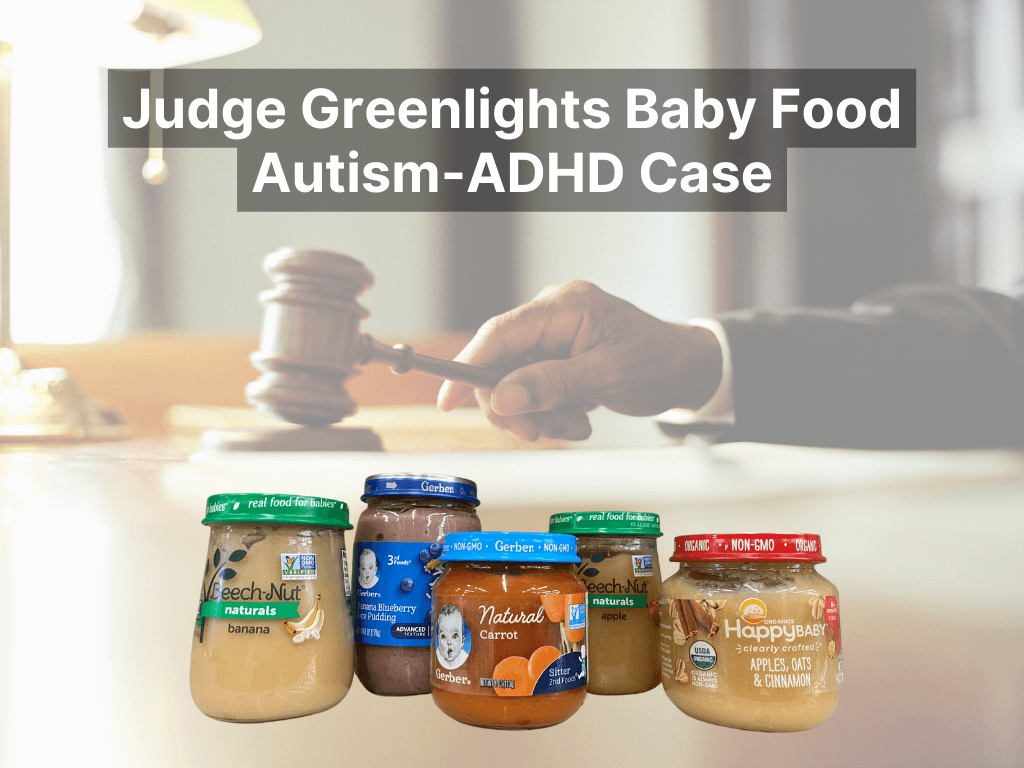"linking Baby Food And Autism: Investigating the Facts And Myths"
Introduction
Understanding infant nutrition's role in the development of Autism Spectrum Disorder (ASD) is a critical discourse in today's health-conscious and science-driven world. But are the rumours circulating about a link between baby food and autism based on facts or mere myths? This article sheds light on this subject, exploring scientific viewpoints, the impact of heavy metals in baby food, and the viable alternatives for infant nutrition.
What is Autism Spectrum Disorder (ASD)?
Autism Spectrum Disorder (ASD) is a longstanding neurological and developmental disorder with a range of manifestations:
- Onset: ASD begins during early childhood and persists into adulthood.
- Behavioural Influence: ASD impacts how a person interacts, communicates, behaves, and learns.
- Symptom Spectrum: ASD symptoms vary widely among afflicted individuals. These can range from difficulty maintaining eye contact, delayed language development to challenges understanding social cues.
- Cause: While the exact cause remains elusive, research suggests a combination of factors including genetic, environmental, and neurological elements contribute to ASD.
- Frequency: According to the U.S. Centers for Disease Control and Prevention, 1 in 54 children are diagnosed with Autism Spectrum Disorder.
- Severity: The severity of ASD can greatly differ, with some individuals thriving independently, while others require significant support.
It's important to remember that each person with ASD is unique, and they may not exhibit all common symptoms.
What Constitutes Infant Nutrition?
Providing the right balance of nutrition during an infant's first years is essential for their growth and development. Here's what fundamentally comprises infant nutrition:
- Breastfeeding or Formula: During the first six months or so, infants primarily rely on breastfeeding or formula feeding to receive all their necessary nutrients.
- Introduction of Solids: After this period, solid foods gradually become a part of their diet. A mix of pureed or mashed fruits, vegetables, and cereals may be introduced initially.
- Nutrient-Dense Foods: As infants grow, their diets should include nutrient-rich foods, like lean proteins and whole grains.
- Avoiding Harmful Substances: It’s critical to eliminate any contaminants or harmful substances that might pose risks to a baby’s health. Harmful substances can range from hidden sugars in packaged meals to heavier toxic threats like lead or arsenic present in certain foods.
Balancing these components ensures a comprehensive nutritional arrangement for infants, promoting healthy growth.
Is there a Connective Link Between Baby Food and Autism?
Evaluating Scientific Evidence Surrounding the Association
The proposed connection between baby food and autism is still undergoing extensive scientific examination, particularly focusing on harmful ingredients or contaminants identified in baby food. The focus of these inquiries often lands on heavy metals and their potential neurotoxic effects. It's worth mentioning that while correlations might exist based on circumstantial evidence, no direct cause-effect relationship has been definitively established between baby food and autism as of yet. Research into this intriguing topic remains ongoing.
Infant nutrition's link to ASD development gets attention in three primary areas:
1. Heavy Metal Presence: Suspicion arises about heavy metals like arsenic and lead found in certain baby foods. Their neurotoxicity raises concerns due to a potential increased risk of cognitive and behavioural issues, including ASD.
2. Research Evidence: A few initial studies suggest possible associations between heavy metal exposure and ASD. Their findings, however, aren't conclusive enough to establish baby food as a direct cause for autism. Essentially, while there's a smoke, the exact source of the fire hasn't been determined.
3. Ongoing Studies: To deeply understand this relationship, more research is needed. Current ongoing studies aim to pinpoint whether early exposure to certain heavy metals through baby food might enhance the risk of developing ASD later in the child's life.
In a nutshell, despite public concern stemming from circumstantial evidence, the scientific community is yet to identify a direct causative link between baby food and autism. Until more concrete results surface, this connection remains a subject of substantial research and debate. As it stands, the potential connection should be considered with a level of caution and scientific scrutiny. It's also important to underscore that other genetic and environmental factors come into play, complicating the question of autism's root causes.
What Role do Heavy Metals in Baby Foods Play?
The existence of heavy metals in baby foods has sparked numerous conversations around its potential impacts on developing children, particularly their neurological development. However, directly correlating these to the onset of Autism Spectrum Disorder (ASD) remains complex due to inconclusive scientific findings.
Critical facts to consider when evaluating the role of heavy metals in baby foods include:
- Known Dangers: Heavy metals, such as lead, arsenic, and mercury, often found in baby foods, are scientifically established neurotoxins. Over time, prolonged exposure to these elements can result in negative health effects.
- Impact on Infants: Infants are notably more susceptible to the harmful effects of heavy metal exposure due to their smaller body size and developing brain.
- Scientific Research: While some studies suggest exposure to heavy metals is linked with a heightened risk of ASD, a direct and definitive cause-and-effect relationship has not yet been established. This is due to the multifaceted nature of ASD, comprising genetic, environmental, and neurodevelopmental factors.
To summarize, while heavy metals in baby food are a genuine concern due to their recognized neurotoxicity, scientific research is still inconclusive about their direct linkage to the development of Autism Spectrum Disorder. The influence of heavy metals is just one among a myriad of factors under investigation in ASD research. The prudent course of action is to minimize heavy metal exposure as much as possible, given their known adverse health impacts.
What are the Safe and Healthy Alternatives in Infant Nutrition?
Making the right choice in infant nutrition can have a profound impact on children's growth and development. With rising concerns about chemical contaminants in baby food, finding safe and healthy alternatives has become paramount for parents and caregivers.
Foods that Minimize the Risk of Heavy Metal Exposure
While ensuring your baby's nutritive intake, selecting foods that are less vulnerable to heavy metal contamination can allow for safer nutrition. The onus lies on making conscious decisions about what goes into your baby’s plate:
• Organic Foods: Organic fruits, vegetables and grains have fewer pesticides and chemical fertilizers which indirectly reduces the risk of heavy metal accumulation.
• Home-Made Baby Food: Another relatively safe alternative is home-made baby food. It not only lets you control the ingredients but also the cooking process, ensuring a lower risk of heavy metals.
• Lean Proteins: Fish like salmon, poultry like chicken, and other lean proteins contain essential nutrients without the worry of heavy metal contamination when sourced responsibly.
• Whole Grains: Brown rice, oatmeal, whole grain pasta, and quinoa are healthier options that are packed with nutrients essential for babies' growth and development.
Selective Processed Baby Food Brands
When it comes to processed baby foods, some brands are more transparent about their safety standards and ingredient sourcing. Parents and caregivers should look for brands committed to:
• Ensuring rigorous safety testing.
• Being transparent about sourcing their ingredients.
• Proactively lowering heavy metal contents in their products.
Breastfeeding and Supplementation
Breastfeeding offers significant nutritive benefits and is less likely to be contaminated with heavy metals than formula or processed baby foods. The World Health Organization recommends exclusive breastfeeding up to six months of age, which can continue with appropriate complementary foods until two years of age or beyond.
A Balanced Diet for Optimal Infant Growth
A diverse and balanced diet is the key to optimal infant growth and development, so it's vital to include a range of nutrients while minimizing processed foods.
Remember, personalized advice from a paediatrician or nutritionist can be beneficial when it comes to formulating an infant's dietary plan. By taking a proactive approach towards infant nutrition, the potential risks associated with heavy metals in baby food can be minimized significantly.
Conclusion
Prioritizing organic and homemade food can ensure your little ones receive the nutrients they need without the risk of heavy metal exposure. Whole foods such as fruits, vegetables, lean proteins, and whole grains are excellent choices.
When selecting processed baby foods, opt for brands that are transparent about their ingredient sourcing and rigorous about safety testing. Breastfeeding, where possible, is recommended during the first six months of infancy and can continue along with supplemental solid foods thereafter.
A diverse diet rich in varied nutrients and minimal in processed foods can help optimize infant growth and development. It is always best to consult a paediatrician or nutritionist for personalized advice.
Related FAQs about what baby food is linked to autism
Can diet during infancy influence the risk of autism?
Infant diet can influence brain development, which may impact autism risk, although the relationship is not fully understood. While some research points towards certain dietary components possibly affecting ASD risk, there isn't clear-cut evidence to establish diet as a direct cause of autism.

Are there specific ingredients or contaminants in baby food linked to autism?
Suspicion arises about heavy metals such as arsenic and lead found in certain baby foods. The neurotoxicity of these substances might increase the risk of cognitive and behavioural issues, including ASD. However, definitive scientific evidence establishing these as direct causes of ASD is lacking.

What safe and healthy alternatives can be considered for baby food?
Healthy alternatives for baby food include organic fruits, vegetables, and grains; home-made meals controlling the ingredients and cooking process; lean proteins like fish and poultry; and whole grains like oatmeal, brown rice, and quinoa. Select baby food brands transparent about their safety testing and ingredient sourcing.


